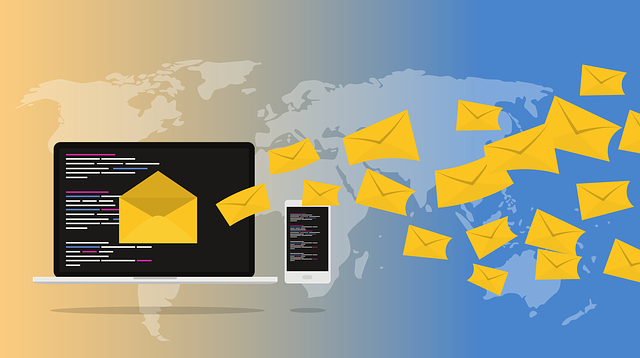AI marketing strategies are transforming car repair shop marketing by leveraging data-driven insights and personalized interactions. Tools like Natural Language Processing (NLP) chatbots and Machine Learning algorithms predict maintenance needs, enabling targeted campaigns and proactive services. Implementing these strategies boosts customer satisfaction, strengthens relationships, and positions shops as industry leaders through automated content creation, advanced SEO, and instant support. Measuring success with KPIs like website traffic, conversion rates, and average order value ensures AI aligns with business goals while enhancing efficiency and reducing costs.
In today’s digital era, embracing AI marketing strategies can propel car repair shops to new levels of success. This article guides you through the transformative power of artificial intelligence in the automotive industry. From understanding its role and reaping benefits like personalized customer engagement and data-driven insights, to a step-by-step implementation process and measuring success through impact on business growth—unleash AI’s potential for your repair shop. Discover how AI marketing strategies can revolutionize your car care services.
- Understanding AI: Its Role and Benefits for Car Repair Shops
- Implementing AI Marketing Strategies: Step-by-Step Guide
- Measuring Success: Evaluating the Impact of AI on Automotive Business Growth
Understanding AI: Its Role and Benefits for Car Repair Shops

Artificial Intelligence (AI) is transforming various industries, and car repair shops can greatly benefit from its integration into their marketing strategies. AI offers an array of advantages, from data-driven insights to personalized customer interactions, all of which are valuable in the competitive automotive sector. By leveraging AI, these shops can enhance their understanding of customer behavior, preferences, and trends, allowing for more effective targeting and tailored marketing campaigns.
In the realm of AI marketing for automotive shops, natural language processing (NLP) enables efficient interaction with customers through chatbots, providing quick support and information. Additionally, machine learning algorithms can analyze vast amounts of data to identify patterns, predict maintenance needs, and offer proactive services. This not only improves customer satisfaction but also fosters long-term relationships by demonstrating a deep understanding of individual vehicles and their owners’ unique requirements.
Implementing AI Marketing Strategies: Step-by-Step Guide

Implementing AI marketing strategies can transform car repair shops into industry leaders, leveraging advanced technology to reach and engage customers more effectively. Here’s a step-by-step guide to get started:
1. Define Your Target Audience: Utilize AI-driven data analytics to gain deep insights into your existing and potential customer base. Identify their preferences, pain points, and online behaviors. This understanding will inform the content and messaging of your marketing campaigns.
2. Automate Content Creation: Implement AI tools for generating personalized content tailored to different segments of your audience. From dynamic email newsletters to optimized website copy, AI can create engaging content that resonates with each customer’s unique needs, improving conversion rates.
3. Optimize Online Presence: Leverage AI search engine optimization (SEO) tools to enhance your car repair shop’s online visibility. These tools analyze trends and competitor strategies to suggest relevant keywords, optimize meta tags, and improve overall site performance, driving more qualified traffic to your website.
4. Implement Chatbots: Integrate AI chatbots on your website to provide instant customer support 24/7. These chatbots can answer common questions, schedule appointments, and even offer personalized recommendations for car maintenance, improving customer satisfaction and lead conversion.
5. Predictive Analytics for Marketing: Use AI predictive analytics to forecast customer behavior and identify trends in repair needs. This allows you to proactively create targeted marketing campaigns that address emerging issues, positioning your shop as a proactive solution provider.
6. Personalize Customer Engagement: Employ AI-driven email marketing platforms to send personalized offers and reminders based on each customer’s history and preferences. This level of personalization increases engagement and fosters stronger customer relationships.
Measuring Success: Evaluating the Impact of AI on Automotive Business Growth

Measuring the success of AI marketing strategies is paramount for car repair shops looking to stay competitive in the digital age. By implementing AI tools, such as predictive analytics and personalized customer engagement, automotive businesses can unlock valuable insights into customer behavior and preferences. This data-driven approach allows for targeted campaigns that enhance customer satisfaction and retention.
To gauge impact, shop owners should track key performance indicators (KPIs) like website traffic, conversion rates, and average order value. AI’s ability to automate tasks also improves efficiency, reducing operational costs and allowing staff to focus on more strategic initiatives. This holistic evaluation ensures that AI marketing strategies align with business goals, ultimately fostering growth in the competitive automotive industry.
AI marketing strategies offer car repair shops a powerful tool to enhance their operations and customer engagement. By understanding and leveraging AI, these businesses can streamline processes, provide personalized experiences, and ultimately drive growth. The step-by-step guide outlined in this article provides a roadmap for successful implementation. Through data-driven insights and efficient automation, automotive shops can stay competitive in today’s digital landscape. Measuring the impact of these strategies is key to understanding their value, ensuring continuous improvement, and achieving long-term success in the automotive industry.
